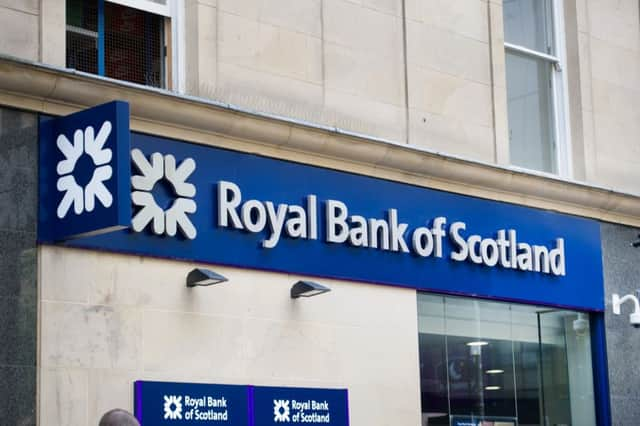RBS rated weak in Bank of England stress test


Royal Bank of Scotland (RBS) and Standard Chartered only got through because they showed that they raised or would raise extra capital during the tests, but shares throughout the sector jumped between 2 and 5 per cent on the positive outcome.
This year’s balance sheet tests included Chinese economic growth – already showing signs of slowing since last summer – plunging from the current 6 per cent to just 1 per cent, oil crashing to $38 a barrel and another £40 billion slashed off banks’ profits for further mis-selling fines and compensation.
Advertisement
Hide AdAdvertisement
Hide AdThe stress simulation also included Europe being faced with a three-year slump as domestic demand fell, and a sharp fall in world commodity prices. In the event of such a seismic shock to the global financial system the Bank of England forecast that profits across the industry would fall by £100bn at their nadir.
The BoE also warned bank shareholders yesterday: “In a real stress, which had a significant impact on banks’ profits, investors should expect banks to cut dividends materially, in line with published dividend policies and the operation of the capital conservation buffer.”
More positively, Bank governor Mark Carney said: “Overall the banking system has moved out of its post-crisis repair phase. UK banks are now significantly more resilient than before the global financial crisis.”
However, he noted concerns over lending practices in the buy-to-let market, saying the financial policy committee, whose remit includes watching out for credit bubbles, will “monitor developments in buy-to-let activity closely”.
Five of the seven lenders undergoing the stress tests – Barclays, HSBC,Lloyds, Nationwide and Santander – passed even in the worst envisaged set of economic circumstances.
Co-op Bank, which failed last year’s tests, was excluded this time as it undergoes a major financial reconstruction. The latest projections showed RBS, which received a £45bn taxpayer bailout in the 2008-9 financial crash, did not meet its individual capital level expected by regulators in the stress scenario.
Standard Chartered, listed on the London stock market but focused overwhelmingly on emerging markets that have faced economic headwinds in recent years, did not meet the minimum capital of 6 per cent in its central capital reserve, its multi-use buffer, after the stress test was applied.
But the Bank said the multi-million pound proceeds from RBS’s sale of its American business, Citizens and the £3.3bn rights issue announced last month by Standard Chartered’s new chief executive, Bill Winters, meant they did not have to raise new capital
RBS’s shares closed up 3 per cent, Barclays rose 4.6 per cent, Lloyds lifted 2.4 per cent, and HSBC added 1.8 per cent.